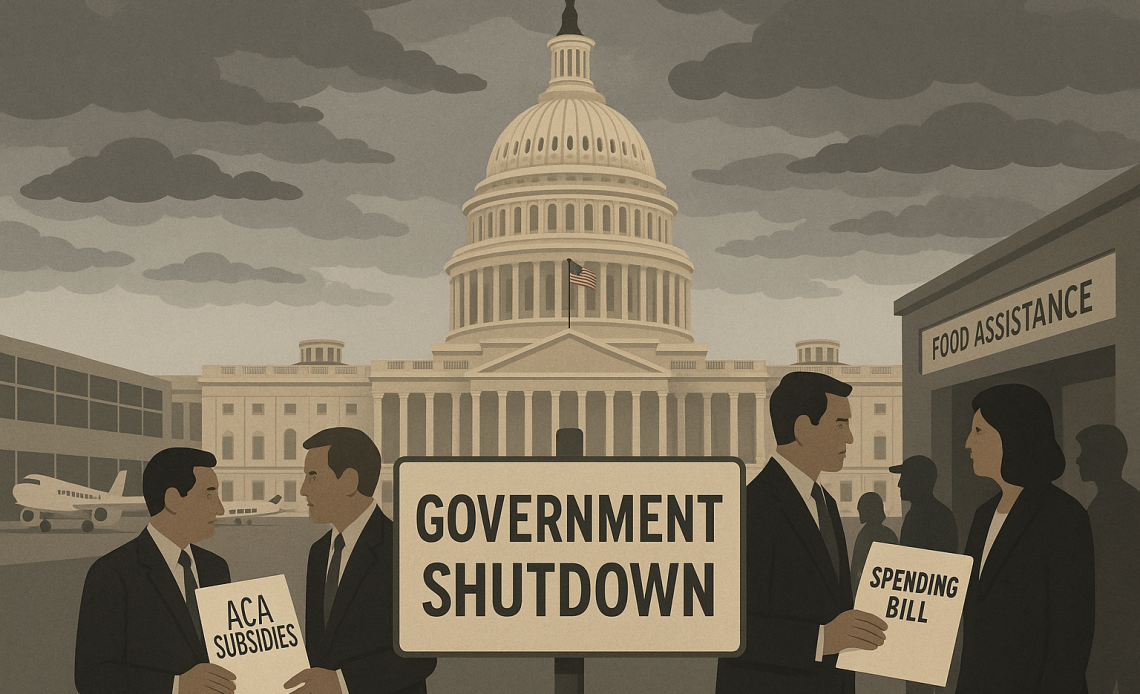Senate Democrats on Friday moderated their demands in an effort to end the ongoing US government shutdown, now in its 38th day—the longest in the nation’s history.
Despite the concession, they continue to insist on a one-year extension of expiring Affordable Care Act (ACA) subsidies as a condition for supporting a temporary spending bill.
The ACA subsidies, which help millions of Americans afford health insurance, have become the focal point of the negotiations between Democrats and Republicans.
The stalemate underscores how deeply divided Congress remains over federal spending priorities and health care policy.
Senate Democratic Leader Chuck Schumer described the offer as a “simple compromise” and a “reasonable offer,” emphasizing that the Senate could act within hours if there was bipartisan agreement.
However, Senate Republicans have so far rejected the proposal.
Senator Steve Daines of Montana, a close ally of GOP leadership, made clear the Republican stance during an appearance on Fox News.
“No we’re not going to do that,” Daines said. “Look, we’ve said open up the government.” The refusal indicates that the impasse is likely to continue without further concessions from either side.
Shutdown ripple effects deepen across economy
The effects of the protracted shutdown are rippling through key sectors of the US economy.
The Transportation Department and Federal Aviation Administration (FAA) this week ordered airlines to reduce flights at 40 major airports.
The cuts began with a 4% reduction on Friday and are set to increase to 10% by the end of next week.
Transportation Secretary Sean Duffy warned that if staffing shortages at air traffic control worsen, reductions could escalate to as much as 20% in the coming weeks.
Airlines have already begun canceling flights in anticipation of operational disruptions, signaling further strain on travel and logistics.
Meanwhile, the shutdown has disrupted essential services for millions of Americans.
Food assistance programs have been paused for 42 million recipients after the administration halted disbursements.
Although a federal court ordered the release of funds on Thursday, the White House has appealed the ruling, prolonging uncertainty for low-income families.
Legislative gridlock and next steps
Initially, Democrats sought a much larger package totaling $1.5 trillion in spending, including a $350 billion permanent extension of ACA tax credits and a repeal of Medicaid work requirements enacted by Republicans earlier this year.
The scaled-back proposal reflects an effort to reach middle ground, but Republicans have shown no signs of shifting their position.
The Senate is expected to hold a procedural vote later Friday on a bill to compensate federal workers who have missed paychecks during the shutdown.
Senate Majority Leader John Thune has warned lawmakers to be prepared for weekend votes on a short-term funding bill aimed at reopening the government.
Thune has pledged to allow a vote on ACA tax credits later this year but stopped short of guaranteeing its passage.
In the House, Speaker Mike Johnson has refused to make any similar commitment, underscoring the challenge of reconciling the two chambers’ priorities.
As the shutdown drags on, the political and economic costs continue to mount.
With both parties entrenched, it remains uncertain whether the weekend negotiations will produce the breakthrough needed to reopen the federal government and restore critical public services.
The post Senate Democrats scale back demands in bid to end historic US government shutdown appeared first on Invezz







